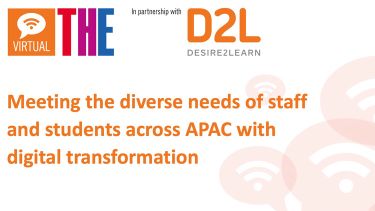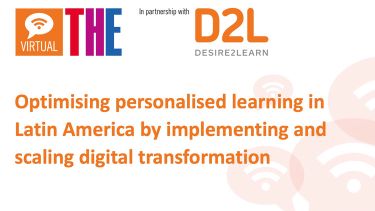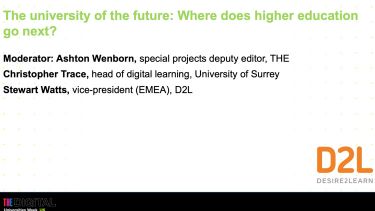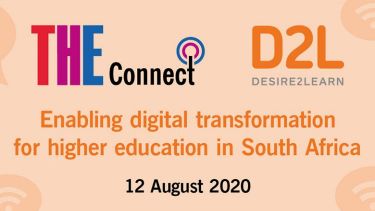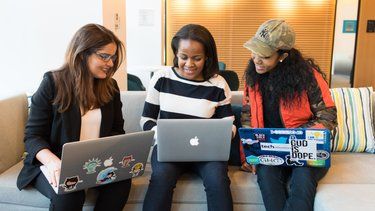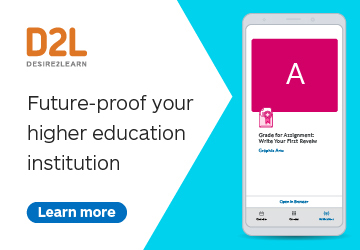Online platforms are enhancing teaching and learning and helping educators design a more flexible model of higher education that supports lifelong learning
Digital learning platforms have allowed the higher education sector to innovate and change the way it delivers teaching. But finding the right balance between online and face-to-face teaching remains crucial for institutions as they draft strategies for the years to come.
At a webinar hosted by Times Higher Education, in partnership with D2L, industry leaders discussed digital transformation and the future of learning, sharing insights into some of the challenges and successes they have had while incorporating digital tools into their teaching. The panel spoke of technology’s potential to improve access to higher education across Europe, the Middle East and Africa (EMEA), and create new teaching models that could support flexible learning.
The conversation was framed by findings from a survey by D2L, which asked higher education experts to share their insights on digital transformation in the sector. D2L serves more than 1,000 institutions globally with its D2L Brightspace online learning platform.
Opening the discussion, D2L’s vice-president of EMEA, Stewart Watts, explained how technology’s role in education will grow in the years to come, enhancing online learning and assessment and improving the skills of staff and students.
“Learners learn in different ways,” Watts said. “Many get left behind because they don’t want to put their hands up in class, and we have seen over the course of the pandemic that digital has given them a way to go over things multiple times, at their own pace, to ask questions privately. One of the key things is giving students choice.”
Watts said hybrid learning offered students the opportunity to collaborate remotely, just as they would in an employment situation. But he cautioned that its success is contingent on using digital tools where they have the greatest impact.
While the rate of technological innovation presents educators with a fast-changing landscape, the panel spoke of the importance of long-term strategy. Like many of its UK peers, a key focus of Nottingham Trent University’s teaching strategy is blended learning.
Samuel Tanner, head of online learning at Nottingham Trent, believes a hybrid approach will support the institution’s focus on professional and vocational learning. Tanner sees the transformative potential of digital delivery in its capacity to break down courses into a more flexible and personalised mode of teaching. But, he cautioned, it was important that digital delivery enhanced the human connection between the student and the institution.
“We have a conversation quite often at Nottingham Trent about personalised versus personal,” said Tanner. “What students are looking for when they are coming here is knowing that they are a person – the academic knowing your name, that personal tutor element. Often when we start to talk about personalisation and technology it can be quite impersonal. The next step is how we can add that personal element back into it.”
Wynand Espach, chief operating officer at Agricolleges, said digital learning allowed upskilling to be delivered at a lower cost. “Students don’t have to step off the employment ladder to top up their skills and remain relevant or to progress in their field,” he said. “This works for employers, too. Upskilling is coming at a lower cost.”
Watts acknowledged that some institutions remain reticent when it comes to digital transformation, but that this could leave them at a strategic disadvantage. One of the lessons higher education can take from the past 18 months is that students’ expectations have changed.
“They expect a level of integration of digital and fully online or blended when they go and study,” Watts said. “And we need the digital skills that this is helping to produce, and the flexibility that these modes of learning give us to upskill the population.”
The panel:
- Wynand Espach, chief operating officer, Agricolleges
- Alistair Lawrence, special projects editor, Times Higher Education (chair)
- Samuel Tanner, head of online learning, Nottingham Trent University
- Stewart Watts, vice-president of EMEA, D2L
Watch the webinar on demand above or on the THE Connect YouTube channel.
Find out more about D2L's survey findings and learn about the digital transformation journey that organisations have embarked on across the EMEA region.
